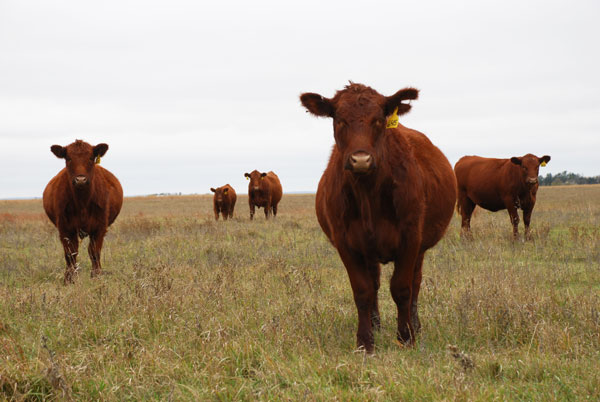Beef sustainability and consumer perception - change happens
Is the beef industry next for animal activists?
April 14, 2016

If anyone thinks the beef industry is too big or too “cowboy” to be forced into change, take a look at what is happening in the pork and egg industries. Due to legislative action brought about by ballot initiative, the use of sow crates are being forced out across multiple states, and at least one large pork producer has publicly committed to phasing out its use of sow crates across it’s entire production system, even in states that haven’t passed bans.
Similarly, cage-free eggs are becoming a requirement at a growing number of retailers and restaurants chains across the country, with new commitments from major retailers announced seemingly daily. Setting aside the debate about whether the use of sow crates and cages in egg production is good or bad, an interesting aspect to consider is that the ability of “popular demand” to change the practices of entire animal agriculture industries (pork & egg) has grown in proportion to the evolution of social media.
With the animal activist community successfully effecting change in the pork and egg industry, a logical question is, will activists now set their sights on the beef industry? To answer that question, we must first answer this question: Are there production practices within the beef industry that could be targeted by activists?
If there are practices in the beef industry that could be questioned by consumer groups far removed from production agriculture, then the simple answer is a resounding yes! The power of social media in the hands of skillful communicators from the consumer community outweighs its size.
Restaurants and retailer chains, those who sell beef directly to the consumer, make it a wise practice to listen to their customers, and when a large contingency of the public speak loud and often on a particular issue, change will happen.
Given the momentum the animal welfare community has gained, change in the beef industry is likely, maybe even inevitable because animal activists are emboldened. The use of sub-therapeutic antibiotics and growth-promoting implants are quickly becoming what could be the next ‘sow crate’ or ‘cage-free chicken’ issue.
Some suspect this will occur even more quickly when activist link their argument against routine use of growth promotants by the beef industry to the almost universal practice of castration. Could the beef industry ever be forced to stop castrating male calves in the name of animal welfare, using a similar tactic that was taken to ban sow crates and battery cages? If the answer is yes, the industry should start now to consider the ramifications, good and bad.
Sustainability is a broad topic that encompasses issues such as environmental friendliness, financial viability and social responsibility. Animal welfare is an important factor that squarely fits within the sustainability discussion.
However if the industry doesn’t act quickly by becoming more proactive on the issues, we run the risk of the issue becoming unilaterally controlled by well intentioned but uninformed people outside the industry, through ballot initiatives and other legislature action.

70+ photos showcasing all types of cattle nutrition
Readers share their favorite photos of cattle grazing or steers bellied up to the feedbunk. See reader favorite nutrition photos here.
This would severely threaten a common-sense, continuous improvement approach to animal welfare and sustainability in general, jeopardizing the progress the industry has made, and changing the course to continuous improvement, which to date has been collaborative and constructive.
Animal welfare is an issue that has understandably gained momentum, since conscience human beings, no matter how far removed from animal agriculture production, instinctively expect animals to be treated humanely even if they don’t fully understand what that means. This is a noble manifestation of a well-intentioned civil society, but what happens when the least informed start to dictate management practices through ballot initiative, as the case with sow crates & cage-free chicken?
Bryan Weech is a consultant and adviser on sustainable agricultural projects. Contact him at [email protected].
You might also like:
10 photo finalists celebrating spring
Burke Teichert: How to manage your way out of a hard-calving cowherd
2016 market outlook: Here's what to expect
Getting first-calf heifers ready for the breeding
You May Also Like


.png?width=300&auto=webp&quality=80&disable=upscale)
